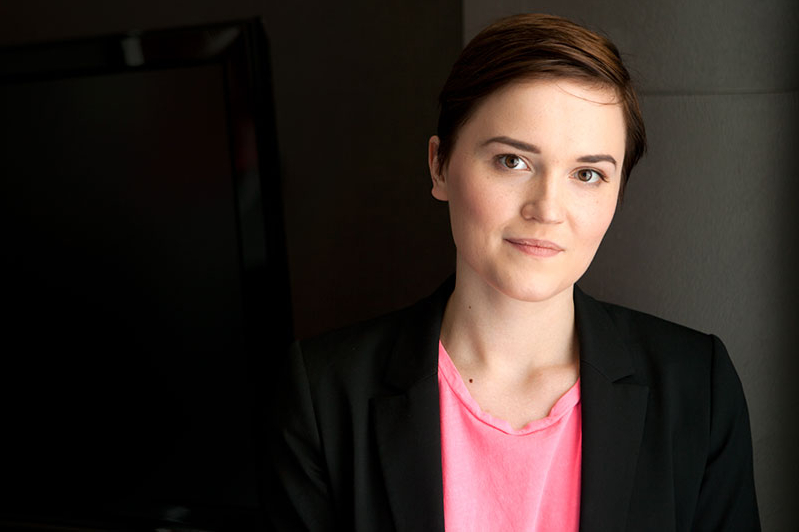
If you haven't heard of Veronica Roth, she is the New York Times best-selling author of the Divergent series. The first two books Divergent and Insurgent have been made into hit films, and the last book, Allegiant, will be made into two films. The books take place in a dystopian environment focusing on a heroine named Tris Prior and her relationship with Four, and the author writes with her Christian faith.
An interview with USA Today, Roth was asked about how she writes for a mainstream YA (Young Adult) audience, and "you've never hidden that you are a Christian". In fact, in the acknowledgements at the end of Divergent, she states: "Thank you, God, for your Son and for blessing me beyond comprehension".
When asked in the interview if "are you ever surprised when hints of your faith show up, unannounced, on the page" her response is: "I'm not really that surprised because I wanted to be true to the teenage experience, which often involves a lot of consideration about existence and about God and even whether you believe in a God or not. I didn't feel that Tris would be a real person unless she considered those things. I tried very hard not to have her proselytize the reader or anything like that because what I really think is that Tris is always questioning everything. She never comes to a decision about spiritual issues. My opinions don't really bleed onto the page, but the things that I think about she also thinks about. I just try to make it as honest and real as possible."
The first book does get into some pretty dark areas that feel rather real. There is a scene where Tris is abducted, and one of her assailants essentially feels her up. This detail from this scene is not in the movie version, and it could have easily been cut from the book as well. Still, given that scenario present in the book, it is realistic to think that something like that would happen.
It is pretty clear that Roth's books could go into a somewhat questionable sexual realm with the relationship between Tris (Beatrice) and Four (Tobias). However, Roth has chosen not to write more than implied sex scenes, saying "I don't want smut on the page" and "I don't want to titillate".
Many have compared the Divergent series with that of Suzanne Collins' The Hunger Games. After all, there is a female protagonist in a dystopian future that has to lead a rebellion against a tyrannical system. If anything, the first book of the Divergent series bears a stronger resemblance to Ender's Game than to The Hunger Games. In Orson Scott Card's Ender's Game, the main character is a small child that is sent to a military boot camp in space. In Divergent, Tris Prior is older, but she chooses to go into a boot camp on Earth. It might be a coincidence, but one of Tris' persecutors is named Peter, which is the name of Ender's villainous younger brother from Ender's Game.
It is very odd that this dystopian type of fiction, which used to be targeted at adults with books like George Orwell's 1984 and Aldous Huxley's Brave New World is starting to be delivered to a teenage audience. There are obvious nods to these classic dystopian works within Divergent. In 1984, there is a terrifying Room 101 in which its victims are subjected to their worst fears. In Divergent, there is a similar place, but those who visit it have to face their fears. In Brave New World, there is a five-level caste system. In Divergent, the factions are five different groups, but they are competing for superiority.
Unfortunately, these types of dystopian young adult books are starting to be a little formulaic, and all three examples have the protagonist having an underdog journey to where they are at the top of their class. The one factor that makes Roth's world very different is the amount of world-building that she has given it.
Yes, the world is full of typical dystopian things like burned-out buildings and advanced yet hampered technology and the like, but the factions feel very original. In Roth's Divergent world, the characters have to choose which faction they will belong to at sixteen. The factions include the militant Dauntless, the agrarian Amity, the legal Candor, the knowledgeable Erudite, and the selfless Abnegation. Roth has taken her time to show that each faction not only has its own manifesto, but unique culture and sub-cultures as well.
It can be interpreted that the factions could be a symbol of high school. That essentially you have to join a clique and then stay with it. It certainly makes a decent enough metaphorical statement for a series of books popular with the YA audience as well as the adult crowd that have embraced it as well.






